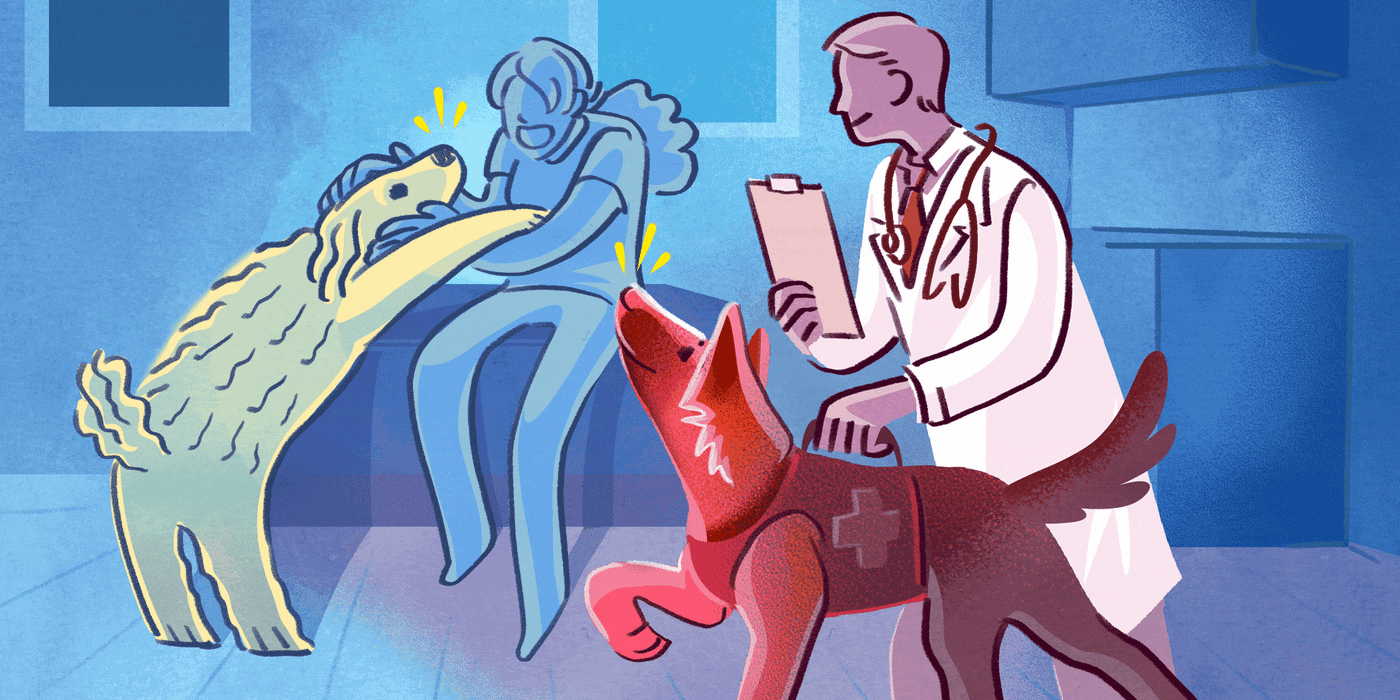As I stumble into yet another year of pandemic malaise, it’s easy to feel discouraged by the state of the world. But despite all that is challenging in this new year, there’s a familiar comfort at my side that didn’t exist in my pre-COVID world — the now grown puppy that joined my family a year ago and is now plastered to my side whenever I’m at home. In December of 2020, during another brutal COVID-19 surge, and just before I started a 3-month inpatient stent, my wife and I picked up a puppy named Winnie and welcomed her into our home. Over the past year, Winnie has brought a measure of comfort and companionship to our household that I never expected. She entertains our children, snuggles up with whoever has had the most difficult day, and demands a walk each evening, keeping me active even during the darkest and most difficult days of the pandemic.
And our family is not unique. One survey found that upward of 19% of U.S. households acquired a pet between March of 2020 and May of 2021. And despite concerns that many of these pets would be returned, initial estimates show that 90% of newly acquired dogs and 85% of new cats were still in their new homes at the end of May 2021. Like my family, it seems that many new pet owners were seeking companionship when faced with the isolation and uncertainty of COVID-19, adopting dogs and cats into their homes. And as the pandemic has worn on, I have been reminded repeatedly of the beneficial impact pets can have on patients’ lives.
One of the most rewarding experiences I have had during the pandemic has been conducting home visits with geriatric patients who are unable to come into clinic. Time and time again, I have been struck by the bond and comfort many patients receive from their pets. I visited one elderly woman who lived completely alone except for her little white dog. She suffered with significant anxiety and was isolated from her family but had a routine with her dog that kept her days structured. Her dog got her up in the morning and the routine of feeding him reminded her that she needed to eat. When she felt overwhelmed, the dog would sit with her in a recliner, and she would pet him while taking deep breaths. For her, the dog was more powerful than any medication changes I could make.
At another patient’s home, I was greeted by a large terrier who assessed me thoroughly before letting me inside. The patient had early dementia and had recently lost her husband of decades. As we talked about her mood and assessed her memory, she told me that despite everything she was experiencing, everything she had lost, her dog was a constant joy in her life. With the foundation of her life shaking beneath her, she felt grounded and safe with her dog.
At another house, I paused at the sight of a powerful pit bull barking at me as I knocked. But once inside, the dog was overjoyed to have a visitor and showed me to her owner in the living room. The patient was bedbound after a recent hospitalization, experiencing a great deal of pain and anxiety. At the end of the appointment, we were reviewing medication changes when the dog came over once more. Like so many others, the patient went on to tell me how the dog was such a source of comfort and companionship, especially since she returned from the hospital.
While the effect of pet ownership on health outcomes is complicated and incompletely understood, these experiences have convinced me that there is a real benefit for many patients. Several well done studies support this, with some suggesting a trend toward improved cardiovascular health and others showing decreased isolation among pet owners. One recent study found that during the pandemic pet ownership improved overall well-being. Additional studies found decreased loneliness in dog owners during the pandemic with animal ownership mitigating some of the psychological impacts of COVID-19 lockdowns. That’s not to say pet ownership is unilaterally positive – one recent study found that pet ownership during the pandemic may have conferred an increase burden of stress for some, especially for those undergoing financial hardships. Another study found a concerning increase in dog bites in children in 2020, especially during the lockdown period. But despite the risks, in the right circumstances, responsible pet ownership has the potential to make a positive impact on some of our most vulnerable patients.
The pain and hardship of the pandemic has been relentless, but one lesson I have taken away from this time is the importance of understanding a patient’s environment and support system. Paying attention to who a person lives with, how they go about their day, and the ways they find joy even in challenging circumstances can have a significant impact on the success of a treatment plan. Asking about pets has made its way into my history taking, not just to build rapport but also as a method of better understanding a patient’s life. And it’s through this lens that I’ve come to better appreciate the healing impact of a friend – sometimes one with four legs.
Share a story about one of your patient's pets has helped them — or how your own pet has helped you.
Chris Morrow is a geriatric psychiatry fellow at the Johns Hopkins School of Medicine. He completed his general psychiatry residency training at Johns Hopkins and served as a chief resident during his final year. His clinical and research interests include the psychiatric care of patients with neurodegenerative disease, psychiatric care in patients with complex medical illness, psycho-oncology, and collaborative care. He is a 2021–2022 Doximity Op-Med Fellow.
All names and identifying information have been modified to protect patient privacy.
Animation by April Brust







